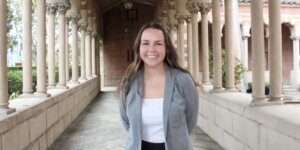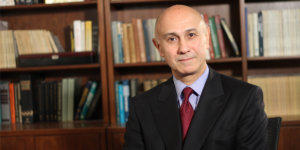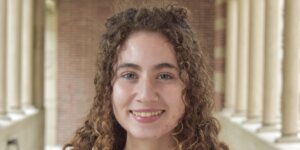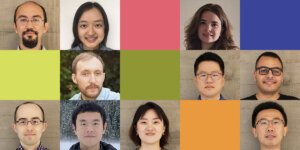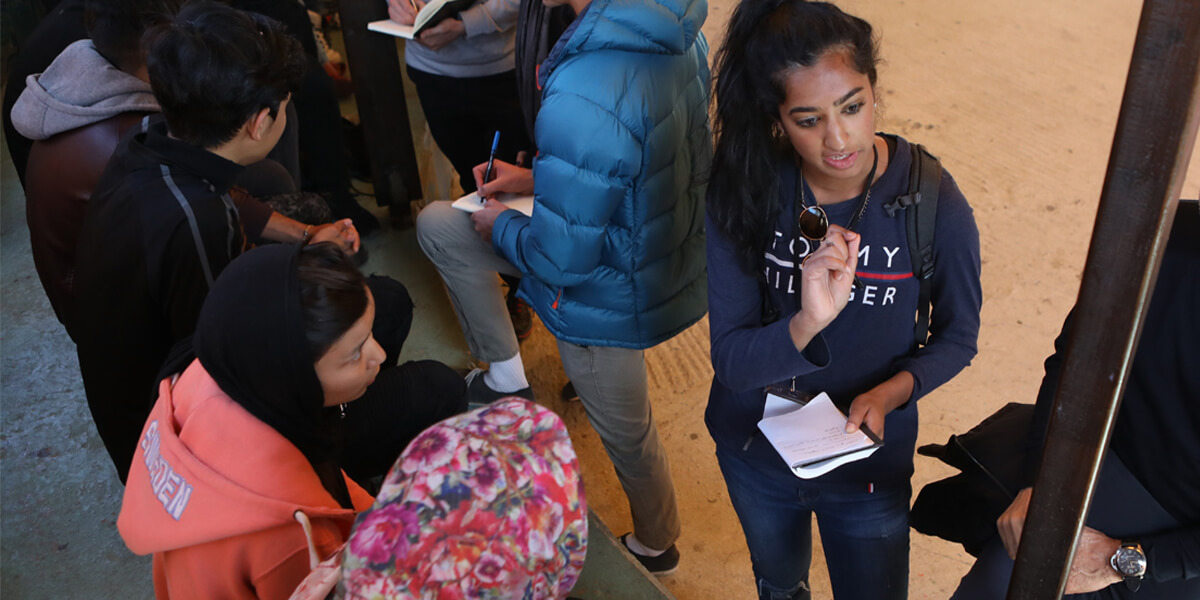
Computer science student Anya Nutakki interviews young refugees in Lesvos, Greece. Photo/Elias Marcou.
Eight months ago, Anya Nutakki had a lifechanging encounter. At Moria refugee camp on the Greek island of Lesvos, Nutakki, a USC computer science junior, met Aaliyah, a 16-year-old refugee from Iran.
Aaliyah has a fourth-grade education, but is passionate about math and dreams of one day working for NASA. She was teaching herself C++ using CodeAcademy, an online platform, at a local computer center. But, with limited time and little support, it was an uphill battle.
“Her aspirations and interests directly match my own, but just because of where I was born, my dreams feel infinitely more attainable,” said Nutakki. “This will never sit right with me.”
The lost generation
When Nutakki met Aaliyah last fall, she was visiting Lesvos to speak with refugees as part of a USC Viterbi course, CE 499: Special Topics in Engineering Design for Global Challenges. Students taking the course were tasked with creating an engineering-based solution to help refugees in Moria, Europe’s largest refugee camp.
During two weeklong visits to the camp, Nutakki and her five teammates, named Team Key, spoke with hundreds of young refugees, hosting numerous workshops at Moria and local refugee centers to discover specific areas of need.
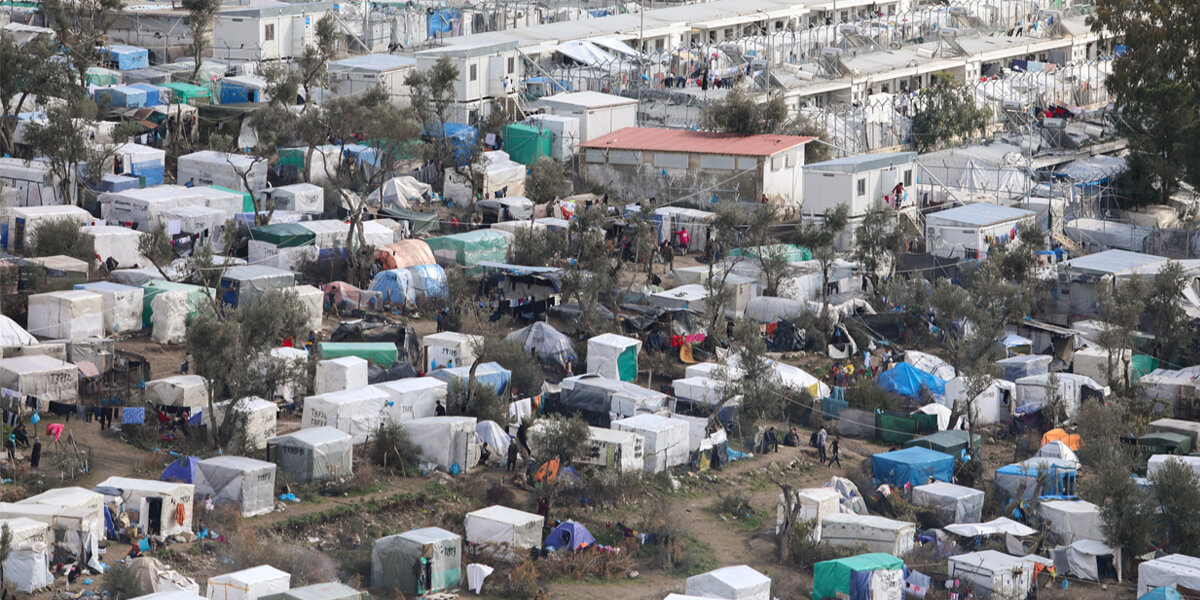
Constructed for 3,100 people, Moria now has a population of more than 20,000 refugees. Photo/Elias Marcou.
The team soon zeroed in on a fundamental problem: access to education. The team found out that school-aged children make up more than 45% of the people living in and around Moria, which now has a population of more than 20,000 men, women and children.
In addition, for many young refugees like Aaliyah, the lack of education in the camps compounds already compromised education due to war and conflict in their home countries. When they reach the refugee camp, their lives are put on hold, sometimes for more than a year, as they await asylum.
While the team initially planned to focus on hobby-based content, after speaking with refugees, the message was clear: more than anything, they wanted to learn practical skills to find a job as soon as they gain asylum and leave the camp.
“When we talked to people, the focus was very much about practical value and getting a job as soon as possible,” said Autumn Gupta, who recently graduated with a degree in environmental studies and geodesign.
“They told us they wanted to learn skills to start a business, get a job and integrate into their new communities.”
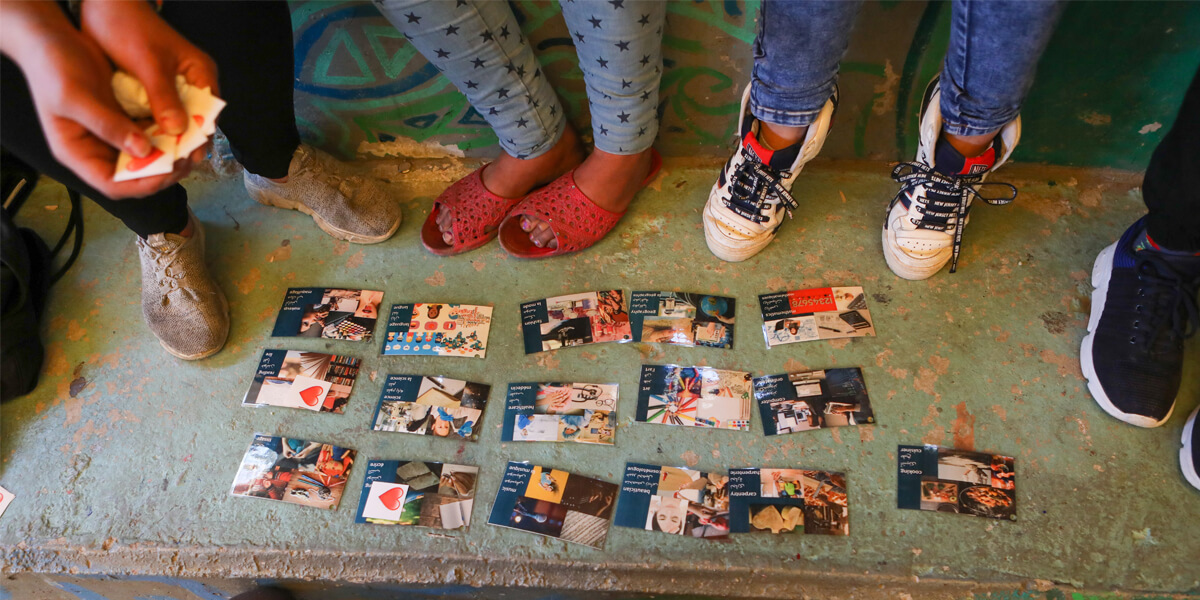
Refugees pick their favorite topics to learn about via the Key Learning app, by placing hearts on the cards that interest them. Photo/Elias Marcou.
A smartphone education app
Based on this feedback, the team set out to develop a skills-based learning app, which would guide students through curated videos and interactive lessons from YouTube.
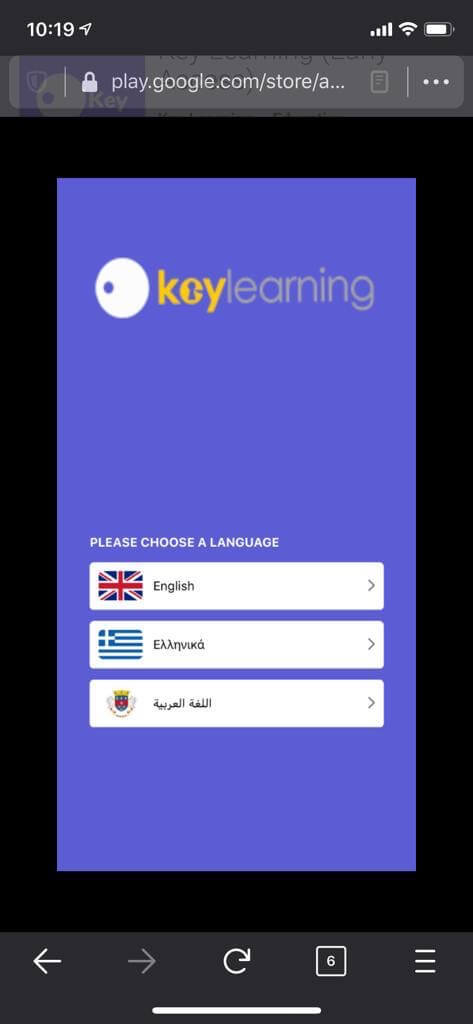
The Key Learning App is available for early access on Android.
The app, called Key Learning, aims to be as close as possible to a one-stop-shop for learning, helping refugees gain new skills, from coding, hairdressing, jewelry-making, to setting up a small business in their new homeland.
All the video content is curated specifically with refugees in mind and is available in Greek, Arabic, Farsi and English.
Crucially, at the end of the program, there is an option to receive materials associated with the selected course. It could be a virtual mentorship session with an expert in your chosen field, or a starter kit related to the course, for instance a sewing kit for would-be clothing designers or dressmakers.
To provide the starter kits, Team Key will partner with another team taking the class, Duet, a micro-philanthropy platform that facilitates donations to resettled refugees through local businesses.
A pilot version of the app, which was created by a team of USC computer science students for a capstone project in CSCI 401, Design and Construction of Large Software Systems, has been approved by Google Play. It will initially be available on Android, as the students’ research indicates that most refugees use Android phones.
“This was such a grand engineering challenge,” said team member Ben Hahn, who graduated in computer science and business administration in May and recently joined Microsoft as a program manager. “It was a very maturing experience as a project manager and I’m really grateful the professors and mentors were so invested in us.”
Life-changing experience
The team hopes the app will help change the lives of refugees like Aalyia, but the experience has also been life-changing for the students themselves, who are still in regular contact with refugees in Moria via WhatsApp.
This summer, members of the team have signed up to voluntarily continue with the project until the app is formally released in its full version in September. They are currently working with three local NGOs to expand the app’s reach, with the hope that it will be accessible for refugees worldwide.
As a result of the experience, Team Key learned sometimes even the most difficult situations can be improved by simple, yet powerful solutions.
Gupta, who hopes to work in the humanitarian field in the future, will continue to be involved with the project from home in Missouri. “Through this project, I found my passion in life,” she said.
“This course taught us the value of empowerment,” adds Nutakki.
“Now, if I see a problem and see an injustice, I know I’m more than capable of making a difference. It truly validates how amazing engineering is—you can code something in your room and it can promote change around the world.”
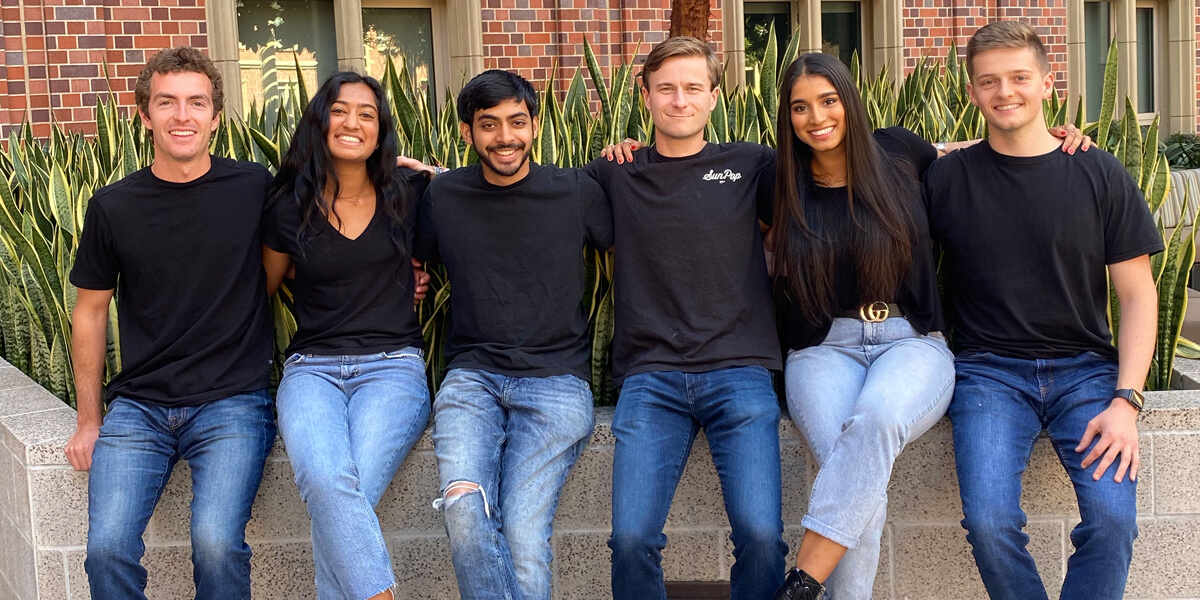
Team Key members (l-r): Tim Guiteras, a student at USC’s Iovine and Young Academy; computer science student Anya Nutakki; Anubhav Garg, who graduated last May in computer science and business administration and joined McKinsey Digital as an analyst; Jack Tenney, a business administration student from the Marshall School of Business; Autumn Gupta and computer science and business administration graduate Ben Hahn.
Published on July 9th, 2020
Last updated on May 16th, 2024




